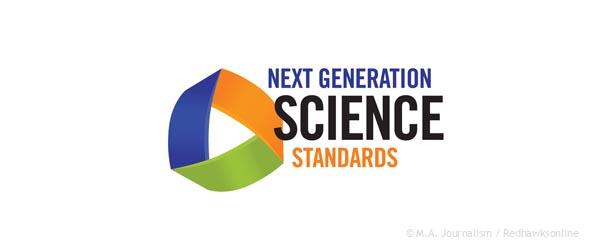A set of standards brings new ideas to science education
“Uh, no,” said freshman Sarah Kaminski.
“No,” freshman Alexis Turnage agreed.
“What?” freshman Rafaela Creamer asked.
None of them knows what a standard is. A dictionary may define a standard as “a level of quality or attainment,” but in education, the term has a more specific meaning. For example, in the Minnesota Academic Standards a standard is defined as “the knowledge and skills students should attain by certain grade levels.”
“Teachers are expected to teach from a set of standards rather than just picking up a book and going from cover to cover or having no plan at all,” said Barbara Fjelstad, Minnehaha’s curriculum director. “Some teachers decided to use the Minnesota state standards for their courses, while other teachers used standards that they wrote themselves.”
Fjelstad explained that teachers who don’t use the Minnesota standards compare their personal standards with the state ones, to see how they compare with what is being taught at public schools. She adds that they also must make sure that the subjects have no gaps and hold no unnecessary redundancy.
In science, a new set of standards, called the Next Generation Science Standards (NGSS), is being created.
The project involves representatives from many states, but was not initiated or funded by the federal government.
If a state adopts the standards then public schools would be required to use them as the basis for their science curriculum.
But unlike public schools, private schools, like Minnehaha, aren’t required to base their curriculum on state science standards, but many private schools use these standards or parts of them because they find value in them.
“We can take these standards and refine them the way that we want to teach them here at Minnehaha Academy because we don’t have that state oversight,” Fjelstad explained.
The NGSS works to create new standards for every grade level of science classes in schools across the United States.
They were created because the last documents, about 15 years old, are slightly outdated, and since then, there have been major discoveries in multiple scientific fields, as well as new concepts about how student learn.
The science organizations’ decision went into action because they wanted to give states the opportunity to keep up with the new science that has been discovered.
Mary Colson, a member of the team writing the standards and the past president of the Minnesota Science Teachers Association, is excited about the standards’ focus on scientific thinking.
“I think the NGSS has the potential to get students working at the practices of science: like asking questions, making and using models, analyzing data, developing explanations from evidence, etc.,” said Colson, who teaches at Horizon Middle School in Moorhead. “Sometimes science classes are about covering the material, not learning to do science.”
Fjelstad said that one of the best things about the NGSS could be “the fact that they have gotten rid of science dead ends, knowledge that students can’t use to solve a problem and don’t need in order to understand other relevant concepts.”
But she also had her doubts.
“These new standards treat some topics, like global warming, The Big Bang and macroevolution, as if they are 100 percent accepted facts, but there’s still plenty of controversy around these topics, even from scientists, and there’s not enough definitive proof to satisfy everyone,” Fjelstad said.
“Students should be allowed to use their own critical thinking skills about these topics and be allowed to look at all sides of these issues, but with these standards, there’s no room for that. Modern science, by it’s very nature and definition, is supposed to be open to scrutiny. That’s how new information is discovered and theories improved and eliminated but these standards, as they’re written, squelch that in students.”
One area receiving more attention in the first draft of NGSS, compared with current state standards, is greater emphasis on climate change and its human causation.
Colson believes that the climate-science portion of the standards is representative of our current understanding of the issue and that the best way to solve any controversy over global warming would be to have a national conversation.
“If we all talk to each other civilly, this can be solved, but if it is made into a controversy, we take away all possibility to talk,” said Colson.
She believes that if the public does view any part of the standards as a controversy, which she doubts many people will, it shouldn’t be a problem.
“How we decide to act given the science data makes the real impact,” Colson said. “These standards will help give understanding so we can make our own choices.”
The NGSS have been under way for a few years now, starting when the Framework for K-12 Education first began in 2010, leading up to its release in July of 2011.
The standards were based on the Framework, and since then they have put out a public draft for reviewing in May 2012, and with one coming in January as well.
The writing team hopes for the NGSS to be released in the first few months of 2013, giving states time to adopt and refine parts of the standards before school starts in the fall.
Minnesota is not slated to review its 2009 standards until 2017, so it is unlikely that the state’s Department of Education would act until then.
Colson hopes that schools will recognize what their hard work has done, and she hopes that maybe with these new standards that students can be “hooked into careers in science and engineering.
For more information, watch this video prepared by NGSS:
